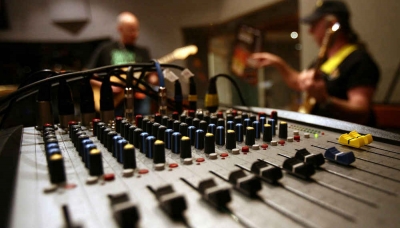What is the career in the field of radio jockeying?

Cooped up at home during the COVID-19 lockdown last year, many of us might have tuned into the radio to hear a friendly voice. The radio jockey's bubbly personality and an incessant stream of chatter can put a smile on our face, lift our mood, and maybe even make us feel a little less lonely. We can form a strange connection with RJs even if we cannot see them. This is the power of radio. And it has managed to stay on even with the television and the Internet. In an effort to stay relevant, radio programming too has evolved, opening up several opportunities for radio jockeys.
Who is a radio jockey?
Radio Jockeys or RJs are the people who anchor programmes and give commentaries on the radio.
Keeping the listeners engaged by playing music or conversing with guests is a major part of their job. So, they must keep abreast of the latest music scene and news events.
Besides content, RJs are also trained in handling the technical side of the show. They are expected to operate the mics, mixers and add sound effects whenever required.
What are the job prospects?
Radio in India has come a long way since the heydays of the All India Radio and Aakashvani. The entry of FM and private channels has expanded the scope of radio as a source of entertainment. One of the popular roles at the radio station is that of a radio jockey. Some of the major radio stations today are Big FM 92.7, Radio Mirchi 98.3, Red FM 93.5, and Fever 104 FM. In countries such as the U.S. and the U.K., Internet radio stations have also opened up. But in a modern-day radio set-up anywhere in the world today, RIs might also be required to come up with audio-video content to popularise their show on social media.
What to study?
Radio jockeys do not necessarily need to have any particular educational qualification. People from different fields, who possess the required skills, can work as radio jockeys. However, a diploma or degree courses in radio and broadcasting is recommended.
Where:
- Asian College of Journalism, Chennai: Post Graduate Diploma in Radio Journalism and Communication.
- Benett University, Noida: Post Graduate Diploma in Radio Broadcasting
- Centre for Research in Art, Film and Television, Delhi: Certificate Course in Radio Jockeying.
- Academy of Radio Management (ARM), Delhi: Diploma in Professional Radio Jockeying (DR).
- St. Xaviers Institute of Communication, Mumbai: Workshop on radio jockeying and presentation skills.
- College of Journalism and Mass Communication (MGM) University, Aurangabad: Certificate course in Radio Jockeing (a two-month online course.); B.A. and M.A. Mass Communication and Journalism.
Required skills
- Speaking fluently
- Voice modulation
- Creativity
- Ability to improvise
- Scripting shows
- Strong interpersonal skills
- Sense of humour
- Versatility
- Discerning ear
- Technical knowledge
Picture Credit : Google